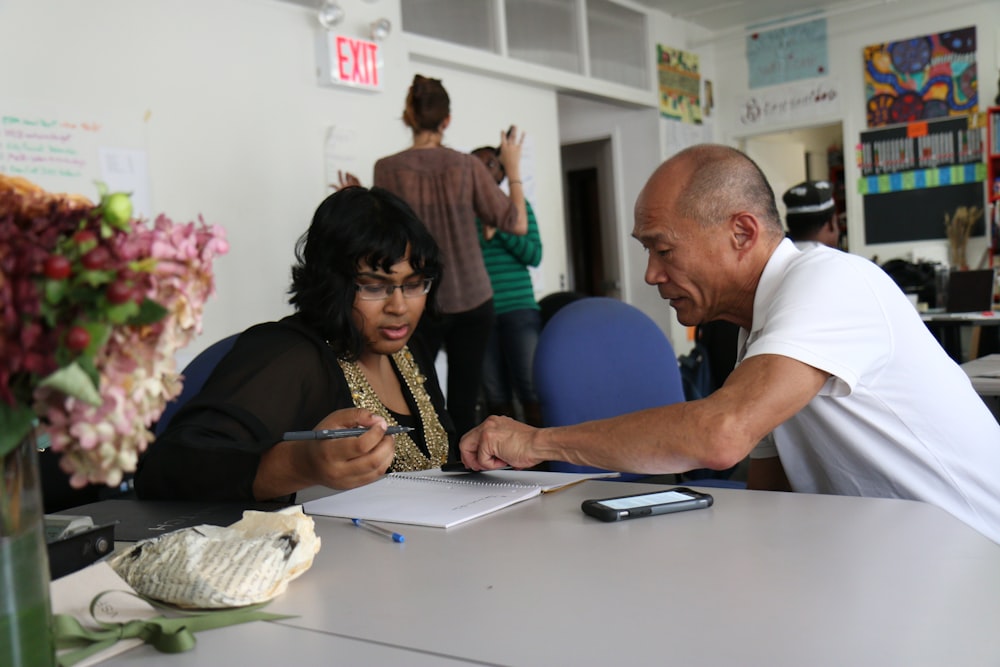Understanding the Void
In the journey of personal growth, one of the most daunting challenges individuals often face is the lack of guidance or mentorship. This absence can manifest as a void, leaving individuals feeling lost and directionless in their pursuit of self-improvement. Without someone to offer wisdom and support, navigating this void can be overwhelming and disheartening.
Feeling Lost in the Wilderness
Imagine standing at the edge of a vast wilderness with no map or compass to guide your way. This is akin to the experience of facing the void of mentorship. Without someone to illuminate the path ahead, individuals may feel adrift, unsure of where to go or how to progress on their journey of personal development.
Struggling to Find Direction
The absence of guidance can also lead to a sense of aimlessness. Without a mentor to provide insight and direction, individuals may struggle to set clear goals and define a path forward. This lack of clarity can hinder progress and breed frustration, making it difficult to stay motivated in the face of uncertainty.
Battling Self-Doubt
Moreover, the void of mentorship can exacerbate feelings of self-doubt and inadequacy. Without someone to offer reassurance and perspective, individuals may question their abilities and worthiness to achieve their goals. This inner turmoil can undermine confidence and hinder growth, creating barriers to realizing one's full potential.
Impact on Growth
Stunted Development
The absence of guidance or mentorship can impede personal growth and development. Without someone to provide feedback and encouragement, individuals may struggle to overcome obstacles and learn from their experiences. This lack of support can result in stagnation, preventing individuals from reaching their true capabilities.
Missed Opportunities for Learning
Mentorship offers invaluable opportunities for learning and skill development. Mentors can share their knowledge and expertise, offering insights that individuals may not otherwise gain on their own. Without access to this guidance, individuals may miss out on valuable lessons and experiences that could accelerate their growth.
Reinforcement of Limiting Beliefs
In the absence of mentorship, individuals may be more susceptible to negative self-talk and limiting beliefs. Without someone to challenge these patterns of thinking, individuals may internalize self-imposed limitations and shy away from taking risks or pursuing ambitious goals. This can create a self-perpetuating cycle of stagnation and underachievement.
Coping Strategies
Cultivating Self-Reliance
While the void of mentorship presents challenges, it also offers opportunities for self-reliance and empowerment. Individuals can learn to trust their own judgment and intuition, taking ownership of their personal growth journey. By cultivating self-reliance, individuals can become more resilient in the face of adversity and adversity, charting their own course with confidence and determination.
Seeking Alternative Sources of Guidance
Although formal mentorship may be lacking, individuals can still seek guidance and support from alternative sources. This may include books, podcasts, online communities, or networking events where individuals can connect with like-minded peers and mentors. While these sources may not offer personalized guidance, they can still provide valuable insights and inspiration to fuel personal growth.
Embracing Trial and Error
In the absence of a mentor to provide a roadmap, individuals may need to embrace a mindset of experimentation and learning through trial and error. Instead of fearing failure, individuals can view setbacks as opportunities for growth and course correction. By adopting a growth mindset and embracing the journey of self-discovery, individuals can navigate the void of mentorship with resilience and determination.
Fostering Growth in Others
The Power of Mentorship
Mentorship plays a crucial role in fostering personal and professional growth in others. Mentors offer guidance, support, and wisdom gleaned from their own experiences, helping mentees navigate challenges and capitalize on opportunities. The impact of mentorship extends far beyond individual growth, contributing to the development of strong, resilient communities and organizations.
Nurturing Talent
Mentorship provides a nurturing environment for talent to flourish. By offering encouragement and constructive feedback, mentors help mentees develop confidence in their abilities and pursue their aspirations with vigor. Mentors also serve as role models, inspiring mentees to strive for excellence and embody the values of integrity, perseverance, and compassion.
Fostering Personal Connections
Beyond professional development, mentorship fosters meaningful personal connections between mentors and mentees. These relationships are built on trust, respect, and mutual admiration, creating a supportive network of individuals committed to each other's success. Mentors serve as confidants and advisors, offering a listening ear and guidance during times of uncertainty or adversity.
Paying It Forward
Mentorship is a reciprocal relationship that benefits both mentors and mentees. While mentors share their knowledge and expertise, they also gain fresh perspectives and insights from their mentees. This exchange of ideas fuels innovation and creativity, driving continuous growth and evolution for both parties. By paying forward the guidance they received, mentees can inspire future generations of leaders and mentors, perpetuating a cycle of learning and growth.
Barriers to Mentorship
Time Constraints
One of the primary barriers to mentorship is the lack of time. In today's fast-paced world, individuals are often juggling multiple responsibilities and commitments, leaving little time to devote to mentorship. Both mentors and mentees may struggle to carve out dedicated time for meaningful interactions, hindering the development of strong mentorship relationships.
Limited Access to Opportunities
Another barrier to mentorship is the lack of access to opportunities for mentorship. In some cases, individuals may be unable to find suitable mentors within their immediate circle or professional network. This can be particularly challenging for marginalized or underrepresented groups who may face additional barriers to accessing mentorship due to systemic inequalities and biases.
Fear of Rejection or Failure
Fear of rejection or failure can also prevent individuals from seeking out mentorship opportunities. Some individuals may hesitate to approach potential mentors out of fear of being turned down or judged unworthy of mentorship. Similarly, mentors may hesitate to take on mentees for fear of not being able to meet their expectations or make a meaningful impact.
Overcoming Barriers to Mentorship
Creating Mentorship Programs
Organizations can play a pivotal role in overcoming barriers to mentorship by implementing mentorship programs and initiatives. These programs can provide structured opportunities for mentors and mentees to connect, offering guidance and support in a formalized setting. By fostering a culture of mentorship, organizations can cultivate talent, promote diversity and inclusion, and foster a sense of belonging among employees.
Emphasizing Diversity and Inclusion
It is essential to prioritize diversity and inclusion in mentorship programs to ensure equitable access to opportunities for growth and development. Organizations should actively seek out mentors from diverse backgrounds and experiences to serve as role models for all employees. By promoting inclusivity and representation in mentorship, organizations can create an environment where all individuals feel valued and supported in their personal and professional growth journeys.
Closing Thoughts
In conclusion, while the lack of guidance or mentorship can pose significant challenges in the journey of personal growth, it is not insurmountable. By cultivating self-reliance, seeking alternative sources of guidance, and embracing the power of mentorship, individuals can navigate the void with resilience and determination. Likewise, organizations can play a crucial role in fostering mentorship opportunities and breaking down barriers to access.
Ultimately, it's up to each of us to take ownership of our personal growth journey. While the absence of guidance or mentorship may present obstacles, it also presents opportunities for self-discovery and empowerment. By embracing the challenges, seeking support when needed, and actively engaging in mentorship opportunities, we can overcome the void and reach new heights of success and fulfillment.
So, dear reader, I encourage you to reflect on your own journey and consider how you can navigate the void of mentorship with resilience and determination. Take proactive steps to cultivate self-reliance, explore alternative sources of guidance, and actively seek out mentorship opportunities. Remember that growth often occurs outside of our comfort zones, and by embracing the unknown, we can unlock our full potential.






